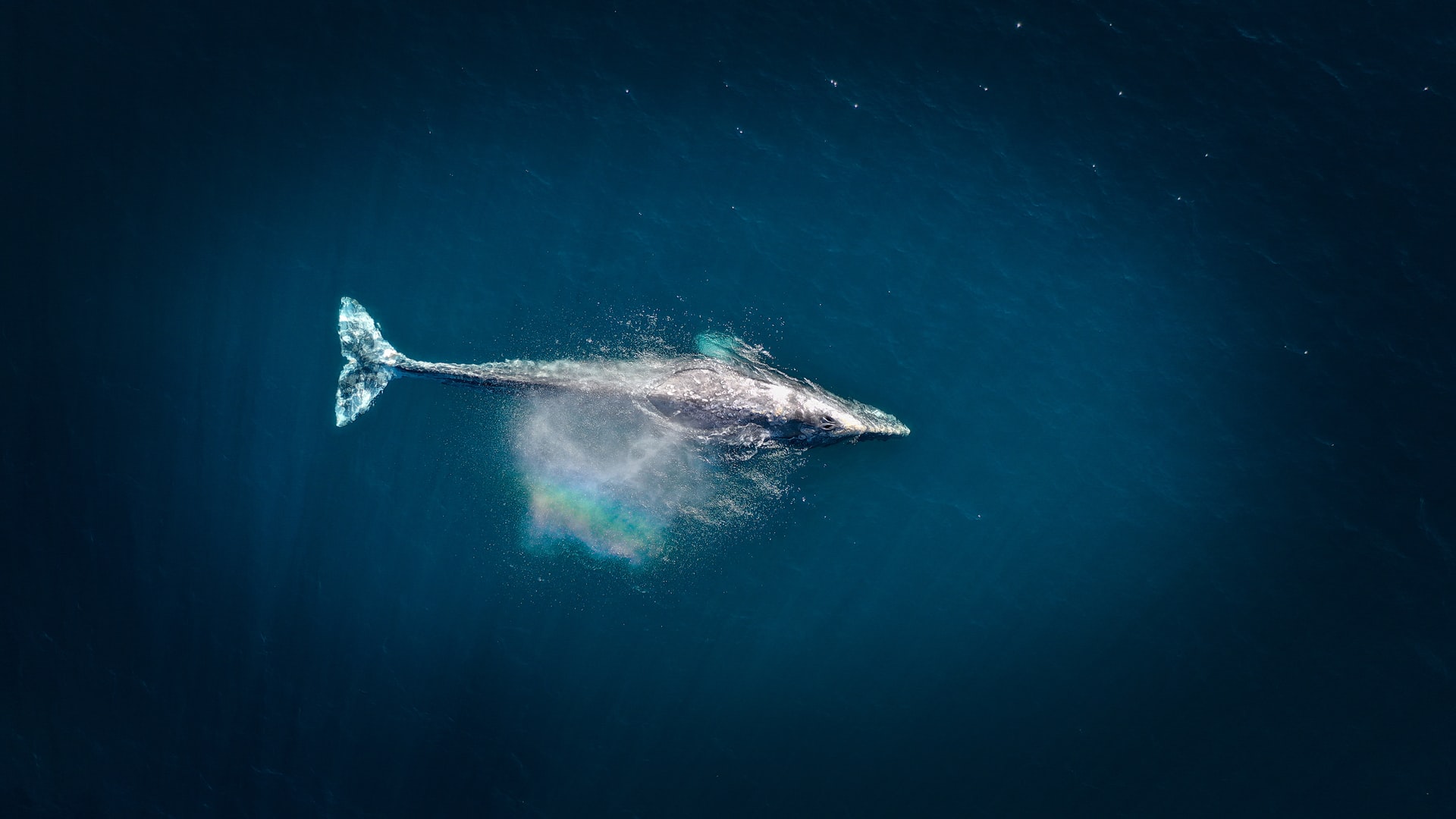Derrick Jensen interviews activists each week. This week Derrick interviews Cayte Bosler.
Cayte is an investigative environmental journalist and a graduate student at Columbia University. She researches solutions for protecting biodiversity and has worked with land-based communities and wildlife defenders throughout Latin America. Her interest is in chronicling community-led resistance to exploitation and ecological abuse to inspire resistance elsewhere. Today we talk about whales.
[Whales] are some of the most elusive creatures on the planet. They spend 99% of their lives under water, far beyond any of our observational tools. Even with the sliver of what we do know, it’s so fascinating.
We’ve only barely begun to understand their rich languages and music. It wasn’t a common knowledge until 1970s that whales could sing. We heard them singing on these amazing recordings that were release then and were part of what inspired this very effort to save them.
We don’t even know their migration routes or where they go in the oceans. A few years ago, we discovered – I’ve trouble with the word discovered. It’s not like out there waiting for us to discover them. But, they were discovered to science, off the coast of Japan species species of beaked whales.
There are about 89 species of cetaceans known to science. Cetaceans include whales, dolphins and porpoises. They’re generally categorized into baleen whales and toothed whales.
Baleen whales are the massive gentle giants. The blue whales, which is one of the biggest creatures ever to exist on planet Earth. Some fun facts: Their heart is the size of a car. Their tongue alone weighs more than an elephant. It’s said that they can fill 2000 balloons with a single breath. (I hope no one actually goes out and tries to test this. That will be a lot of plastic pollution we don’t want.) Some other baleen whales are right whales, humpback whales, or some of the most studied ones, minke whales, grey whales.
Even to understand where their feeding grounds are, we’re using tools like GPS to locate them. That’s really important so we can avoid collisions with ships and some other threats.
They’re just so intriguing. They have some of the biggest brains. We’re starting to try to come up with all these experiments to interact with them, have conversations even. It’s really a shame because I studied lots of different animals and I fall so in love with them and what they are capable of, and at the same time, I’m learning how we’re losing them, and the richness they bring to the world and how that’s being ousted as well.
Browse Resistance Radio interviews here.

